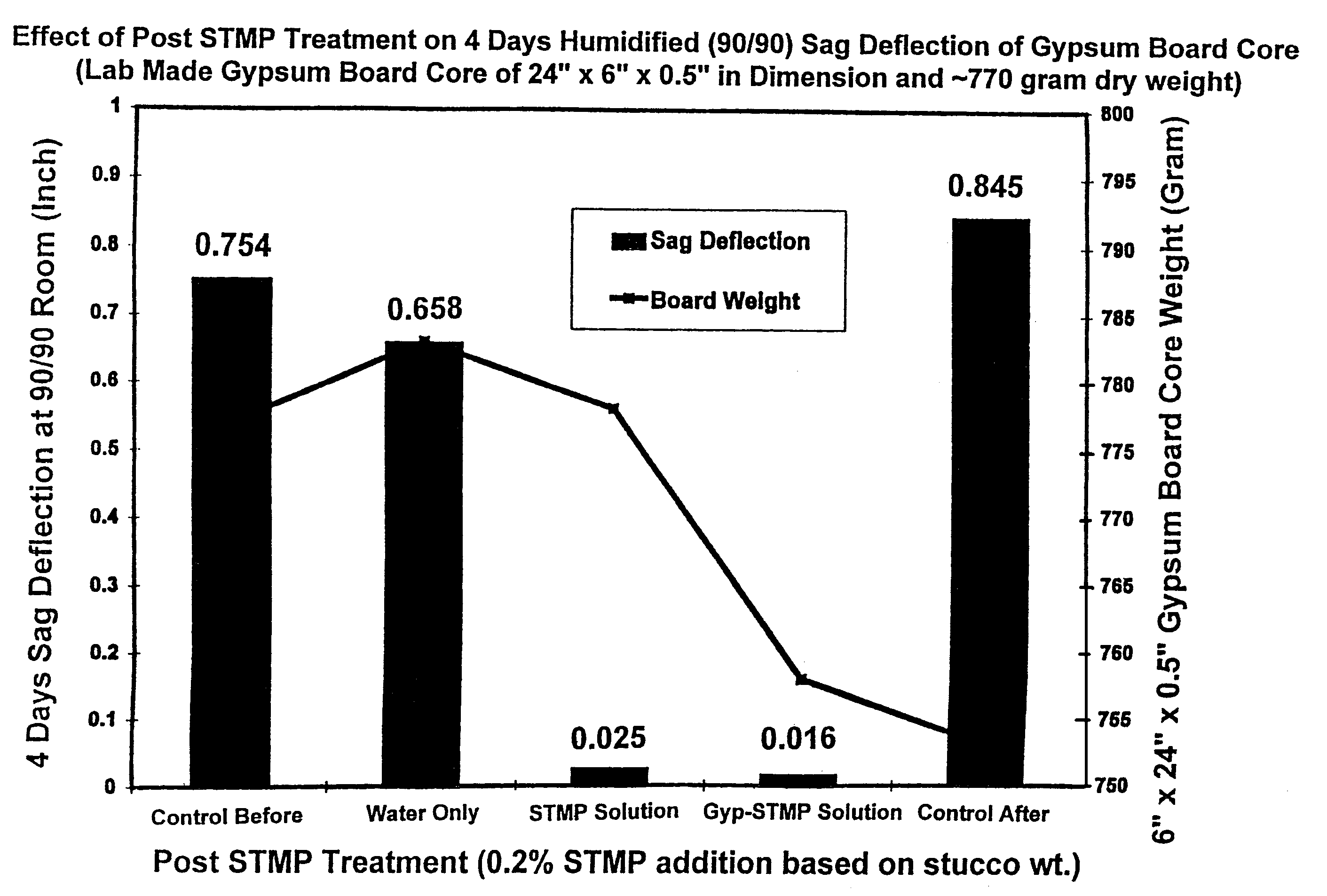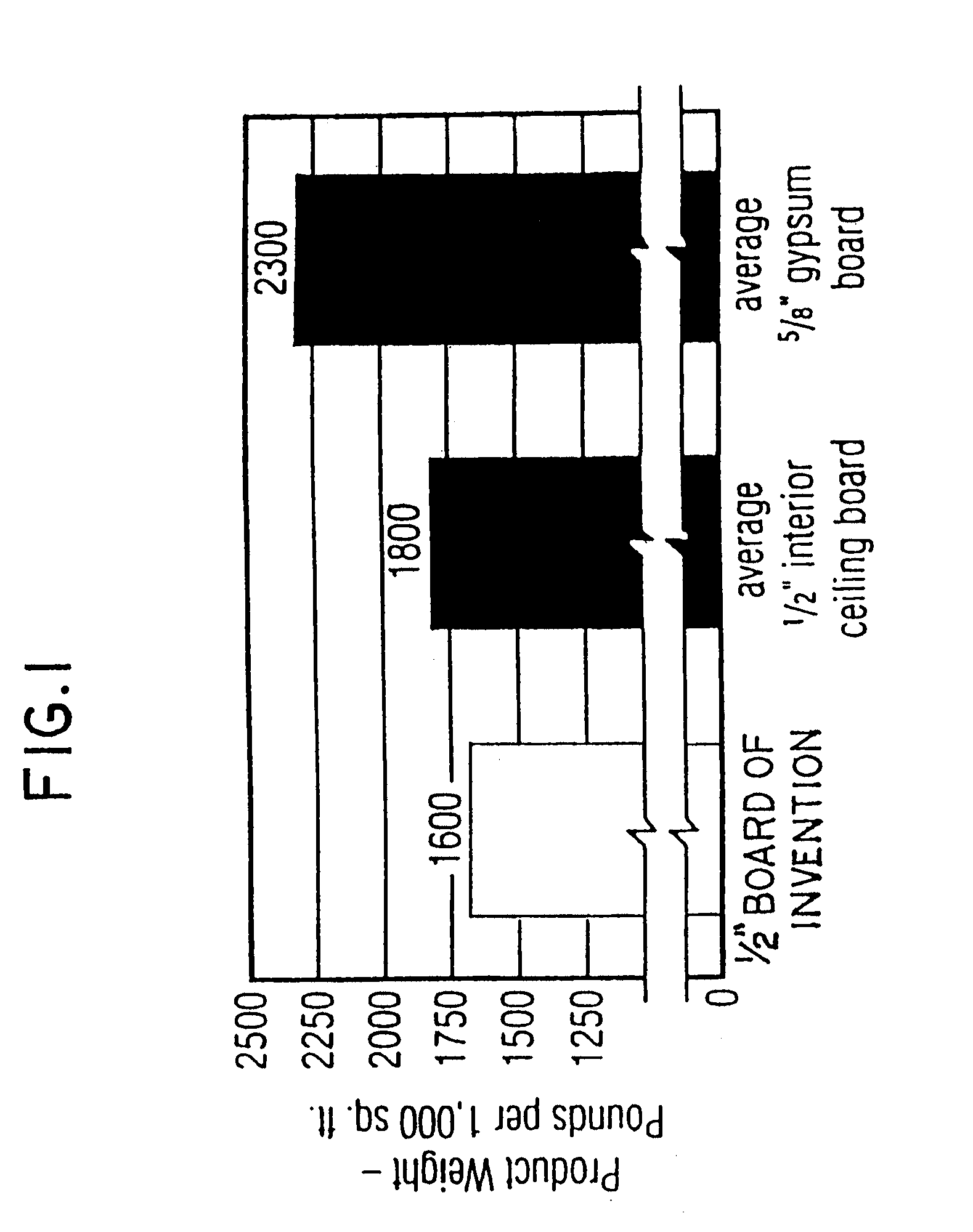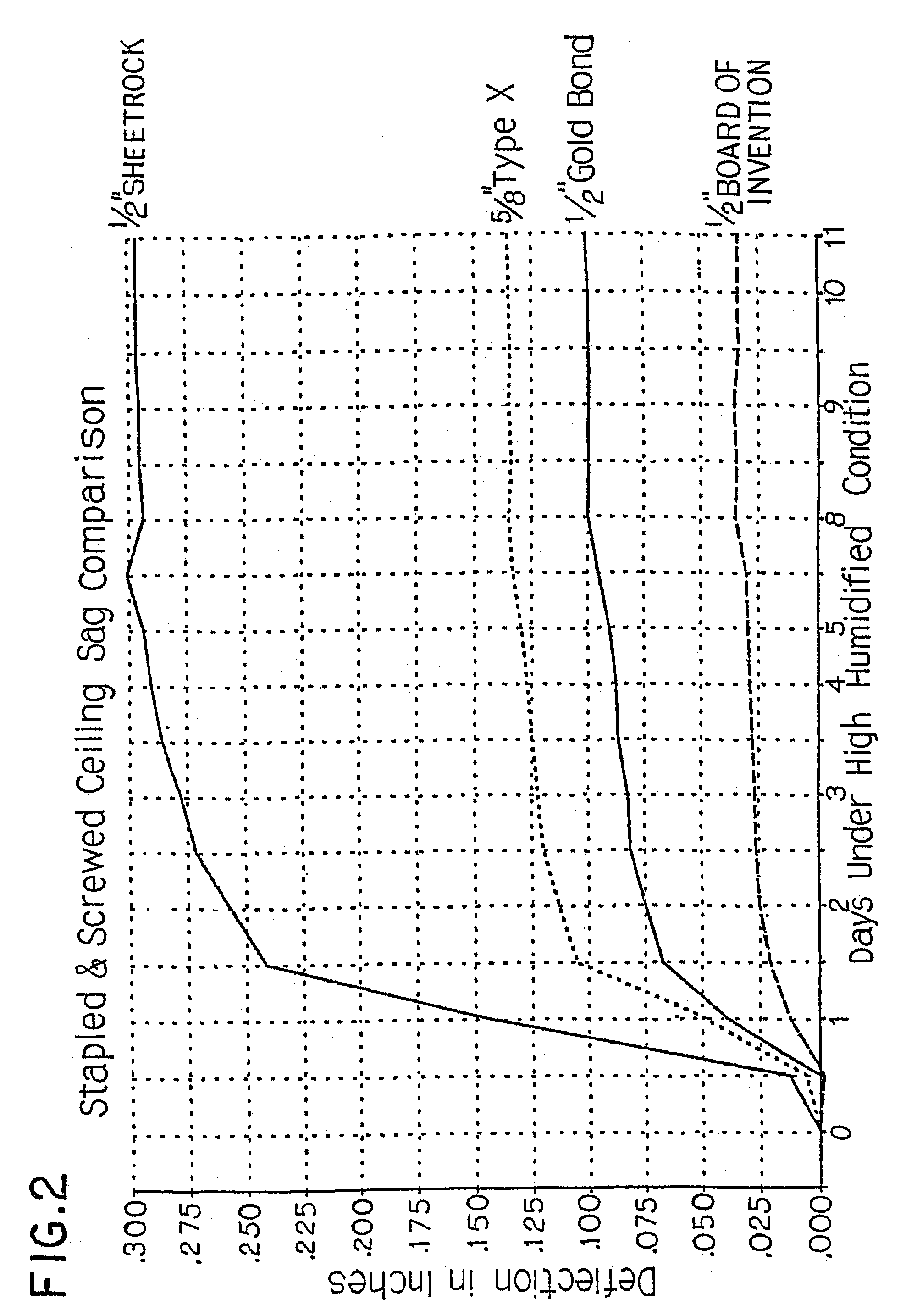Gypsum-containing board and tile, and method for producing same
a technology of gypsum and gypsum, which is applied in the directions of ceramicware, water-setting substance layered products, transportation and packaging, etc., can solve the problems of aggravated sagging problems, difficulties in use of products, and product sagging in areas, so as to achieve light weight, increase strength, and increase the overall strength of the board
- Summary
- Abstract
- Description
- Claims
- Application Information
AI Technical Summary
Benefits of technology
Problems solved by technology
Method used
Image
Examples
example 1
Laboratory Cube Compressive Strength
[0065]Samples of gypsum-containing products were prepared in accordance with the invention and compared, in regard to compressive strength, with samples prepared using different methods and compositions. The test procedure employed was in accordance with ASTM C472-93.
[0066]Samples were prepared by dry blending: 500 g of beta calcium sulfate hemihydrate; 0.6 g of a set accelerator referred to as CSA (Climate Stable Accelerator) commercially available from United States Gypsum Company and comprising fine ground particles of calcium sulfate dihydrate coated to maintain efficiency; and 0 g additive (control samples), 0.5-2 g of STMP (preferred inventive samples), or 0.5-2 g of other phosphate additives (comparative samples). The samples were then mixed with 700 ml tap water having a temperature of 70 F in a 2 liter WARING blender, allowed to soak for 5 seconds and mixed at low speed for 10 seconds. The slurries thus formed were cast into molds to prep...
example 2
Resistance to Permanent Deformation (Laboratory Gypsum Board Sag Resistance)
[0069]Samples of gypsum-containing boards were prepared in a laboratory in accordance with the invention and compared, in regard to resistance to permanent deformation, with sample boards prepared using methods and compositions outside the scope of the invention.
[0070]Samples were prepared by mixing in a 5 liter WARING blender for 10 seconds at low speed: 1.5 kg of beta calcium sulfate hemihydrate; 2 g of CSA set accelerator; 2 liters of tap water; and 0 g additive (control samples), 3 g of STMP (inventive samples), or 3 g of other additives (comparative samples). The slurries thus formed were cast into trays to prepare flat gypsum board samples, each having dimensions of about 6×24×½ inches. After the calcium sulfate hemihydrate set to form gypsum (calcium sulfate dihydrate), the boards were dried in a 112 F oven until their weight stopped changing. The final measured weight of each board was recorded. No p...
example 3
Resistance to Permanent Deformation (Production Line Gysum Board Sag Resistance)
[0074]A product weight comparison is shown in FIG. 1, and the sag resistance of such products is shown in FIGS. 2 and 3. The product weight of interior ½ inch ceiling board in accordance with the present invention (i.e., admixing trimetaphosphate with calcined gypsum and water) has the same weight as interior ½ inch SHEETROCK® regular gypsum board made by United States Gypsum Company. The average ½ inch interior ceiling board shown in FIG. 1 is Gold Bond® High Strength Ceiling Board made by National Gypsum Company. The average ⅝ inch gypsum board shown in FIG. 1 is SHEETROCK®⅝ inch Firecode Type X gypsum board made by United States Gypsum Company.
[0075]FIG. 2 is a graph comparing sag resistance of a gypsum board made in accordance with the present invention with commercially available gypsum boards described above, wherein all the tested boards are installed using conventional stapled and screwed ceiling...
PUM
| Property | Measurement | Unit |
|---|---|---|
| shrinkage | aaaaa | aaaaa |
| shrinkage | aaaaa | aaaaa |
| length | aaaaa | aaaaa |
Abstract
Description
Claims
Application Information
 Login to View More
Login to View More - R&D
- Intellectual Property
- Life Sciences
- Materials
- Tech Scout
- Unparalleled Data Quality
- Higher Quality Content
- 60% Fewer Hallucinations
Browse by: Latest US Patents, China's latest patents, Technical Efficacy Thesaurus, Application Domain, Technology Topic, Popular Technical Reports.
© 2025 PatSnap. All rights reserved.Legal|Privacy policy|Modern Slavery Act Transparency Statement|Sitemap|About US| Contact US: help@patsnap.com



